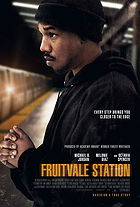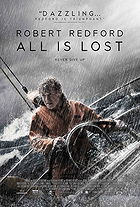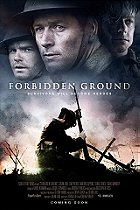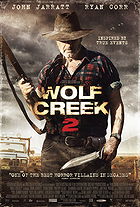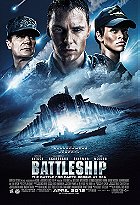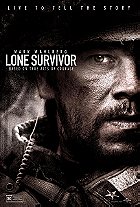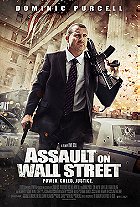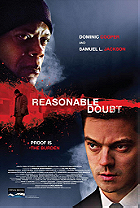Luc Besson's EuropaCorp production company are renowned for bankrolling modestly budgeted action films featuring recognisable actors. The likes of Guy Pearce, Liam Neeson, Jason Statham and John Travolta have all gotten a look-in, and now it's time for Kevin Costner to step into the Besson-produced spotlight. However, 3 Days to Kill was helmed by McG, a talentless hack who is renowned for fucking up can't-miss projects - Terminator Salvation was crippled by the director's incompetency, while This Means War was leaden and joyless. Unsurprisingly, 3 Days to Kill is another miss for the Charlie's Angels helmer. It's a standard Luc Besson creation mixing comedy and action, but such a concoction clearly confused McG, who's absolutely clueless about how to approach the material. 3 Days to Kill is a very European movie, but McG brings his unnuanced American tendencies to the production, resulting in woeful unevenness as the filmmaker struggles to figure out how serious he wants the enterprise to be.

A veteran C.I.A. operative, Ethan Renner (Costner) is diagnosed with cancer that has spread to his lungs, leaving him with mere months to live. Hoping to tie up loose ends before he shuffles off, Ethan returns home to Paris seeking to reconnect with his teenage daughter Zooey (Hailee Steinfeld) and patch things up with his estranged wife Christine (Connie Nielsen). But before long, Ethan is pulled back into duty by rogue C.I.A. agent Vivi (Amber Heard). In return for his services, she can offer him an experimental drug that may cure his cancer. Amid this, Ethan also offers to watch over Zooey for a few days when Christine leaves town. Oh, and Christine is under the impression that Ethan is out of the spy game for good.
Writing a plot synopsis for 3 Days to Kill amounts to jotting down action cliché after action cliché, but the familiarity of the enterprise - and its rampant idiocy - is actually the least of its problems. It's unclear whether the screenplay (by Besson and Adi Hassak) was underwritten or the finished cut was butchered in the editing suite, but the movie's structure is dreadful. In one scene, Zooey is yelling at her father and lecturing Ethan about how much she resents him, but in literally the very next scene Zooey is acting civil towards Ethan, who proceeds to teach her how to ride a bike. Did they patch things up off-camera? Did the editor mess up and accidentally delete a few scenes? Or maybe the problem is just McG, who probably decided to just senselessly turn up the dramatics, turning the scene of Zooey's outburst into something it was never meant to be. The characters also make no sense, with Vivi a bewildering enigma in particular. She's meant to be C.I.A. (I think?), but forces Ethan to kill and puts him in awkward situations, not to mention her actions at the end make no sense.

McG seems to be the key issue with 3 Days to Kill, utterly kneecapping what could've at least been a guilty pleasure. While he may excel with surface polish, he's tone-deaf for atmosphere, rhythm and tone. The direction is slapdash and hopelessly bland, while editing is choppy and the movie never gets into an agreeable groove. The script apparently wants us to enjoy the ride, but McG insists on a "dark" tone too often, clashing with the moments of humour that border on slapstick. One minute the tone is playful as Ethan interacts with the African squatters inside his apartment, but the next minute he's threatening them with a pistol as sinister music plays. The tonal change is jarring and uncomfortable. There is also a running gag involving Ethan's new ringtone (I Love It by Icona Pop), which would be funny if only Ethan wasn't always so mean-spirited ten seconds after answering the phone. Another running gag involves a bike that Ethan buys Zooey for her birthday that she doesn't want; again, it's funny for a while, but then Zooey throws a massive temper tantrum and says harsh things, undercutting the comedy. What the fuck was McG aiming for? Talented filmmakers can smoothly guide such tonal changes, but McG is not talented. Not in the least. Why the hell does this guy keep getting work after showing time and time again that he cannot handle action-comedy?
Basically, the screenplay tries to take on too much, and McG buckles under the pressure. 3 Days to Kill feels random and haphazard rather than detailed, rendering the experience utterly leaden. On top of Ethan's spy mission and familial dramas (not to mention the African squatters), the film also concerns itself with Zooey's French boyfriend (the movie literally has no idea who this kid is or how we should feel about him), and Ethan's dealings with an insider who helps him with his mission and provides parenting tips. Hell, the movie is so concerned with all this excess bullshit that the main baddies only bookend the story. We should be able to enjoy the action if nothing else, but the set-pieces are far too scarce, and McG cannot muster up much excitement. The PG-13 rating is bothersome, too - violence feels restrictive, and deaths are often bloodless, not to mention there's no nudity when Heard is clearly on hand for her good looks. Jesus Christ, this movie is a fucking mess.

This is Costner's first real starring role since 2006's The Guardian, and, if nothing else, the movie reminds us that the underrated actor still has real acting chops despite his advanced age. It's nice to see Costner going through something of a career resurgence, starring in movies like Man of Steel and Jack Ryan: Shadow Recruit to bring him back into the spotlight. He hasn't lost his touch and remains an eminently watchable, badass leading man. Likewise, Steinfeld is hugely impressive, far too good for this flimsy material. Meanwhile, Heard does her best to chew the scenery, but she is unable to overcome the lack of a consistent character. At one point, she disappears from the movie for so long that you completely forget about her existence.
With a script polish, a good (or even a half-good) director, and an R rating in place, 3 Days to Kill could have been a real keeper, but instead, it's a big fat disappointment full of wasted potential. It's frustrating to watch the movie unfold on-screen, witnessing the poor craftsmanship ruin a brilliant promise for a fun guilty pleasure. It's not completely unwatchable, but there are far better action movies out there (see Taken), and Costner deserves a lot better. McG needs to retire before he ruins even more potentially fun movies.
4.2/10
 Login
Login
 Home
Home 183 Lists
183 Lists 1670 Reviews
1670 Reviews Collections
Collections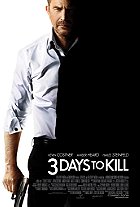
 0 comments,
0 comments, 